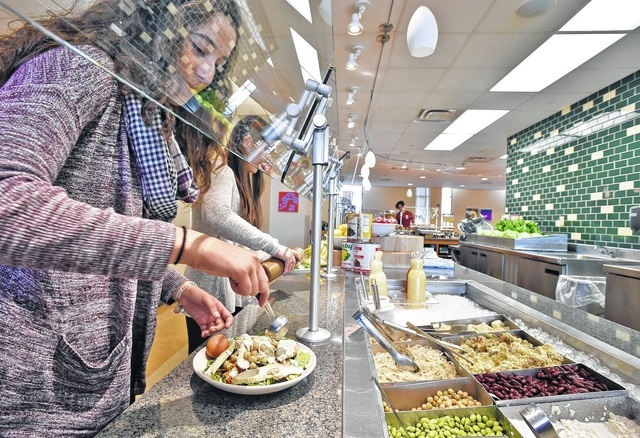Latinos have been called the “sleeping giant,” this election cycle, as the nearly 24 million eligible voters could determine the future of the United States next Tuesday, if only they decide to show up.
According to the Pew Hispanic Center, only 50 percent of eligible Latino voters cast ballots in the 2008 election, compared with 65 percent of African Americans and 66 percent for Caucasians. According to Pew, a similar turnout is expected for this year.
As the fastest growing ethnic population in the United States, it’s truly unfortunate the voter turnout is only at 50 percent. It’s apparent both Democrats and Republicans are anxious to secure the Latino vote Nov. 6.
As the election is only five short days away, remembering that “el pueblo unido jamás será vencido,” that the people united will never be defeated, is just as powerful of a slogan today as it has ever been.
A lot is at stake for the people of the United States this election, as effects of votes on issues ranging from abortion, gay marriage, health care, taxes and immigration will determine the future of our country. Latinos need to have a say, and they need to show up on Tuesday.
In California, the statistics are reflective of a population of people who feel disaffected and that their vote does not matter, or simply cannot vote due to various factors.
Latinos are expected to eclipse non-Hispanic whites in population numbers in California relatively soon, yet will still represent a significantly lower majority at the polls.
Recent surveys from the Public Policy Institute of California show that Latinos comprise 32 percent of the adult population in the state, but only half, 16 percent, of those residents are likely voters. Non-Hispanic whites represent 46 percent of the state’s adult population, but a prominent 66 percent of the likely voter population.
The presidential campaigns have politicized Latinos and painted them as a category of commodity voters who care solely about the issue of immigration. However, Latinos are much more than immigration, and now more than ever, Latinos need to show that through the power of their vote.
According to a poll released last month by Fox News, 48 percent of likely Latino voters think the economy is the most important issue in deciding their vote, while only 6 percent said their vote would be decided based on the immigration issue.
It makes sense, considering that the latest U.S. Bureau of Labor Statistics report shows that Latino unemployment remains critically elevated as it climbed slightly to 10.2 percent in July from 10 percent in June.
The increase in eligible Latino voters since 2008 is dramatic. In that year’s presidential election, 19.5 million Latinos were eligible to vote, or 22 percent fewer than can vote this year.
However, despite population growth, the number of Latinos who said they are registered to vote fell by about 600,000 between 2008 and 2010, according to Census Bureau data.
Data shows that politicians are spending millions of dollars on campaigns across the country to attract and entice Latino voters. It is clear that recognition of the sleeping giant’s capacity to sway politics in the country has definitively arrived.
Latinos must bring out their voting power now more than ever to make their voices heard in the political conversation. Taking part in a democracy as opposed to just spectating will aid Latinos in remembering that they are as powerful and influential as any other demographic.
Latinos in California have more reason to vote than ever, as does the general population. On this year’s ballot there are inititatives that will affect any Latino voter as much as any other resident, if not more. For example Proposition 37 deals with labeling genetically modified foods; Proposition 36 could affect the severity of sentencing on three strike offenders; and Proposition 30 could seriously affect the state education system, especially higher education.
Nearly seven out of ten California Latino adults are overweight or obese, according to a 2005 study by the California Department of Health Services.
Among adult men in the state, 770 per 100,000 whites were incarcerated, while 1,141 per 100,000 Latinos were incarcerated.
Education is the great equalizer. Clearly, all of these ballot initiatives will affect the future of this great state, and all those who call it home, including our vast Latino population.
When the Latino community mobilizes behind a cause, it’s powerful and effective. Latinos have rallied for the Dream Act since it’s inception in Aug. 2011, and their cries were not forgotten.
On June 15, 2012, President Barack Obama announced that his administration would stop deporting young undocumented immigrants who match certain criteria previously proposed under the Dream Act.
If Latinos can unite in the same fashion on Nov. 6 for issues they feel strongly about, there’s no stopping their voices from being heard.
If there’s ever a time to say it, it’s now: “Si se puede!”











